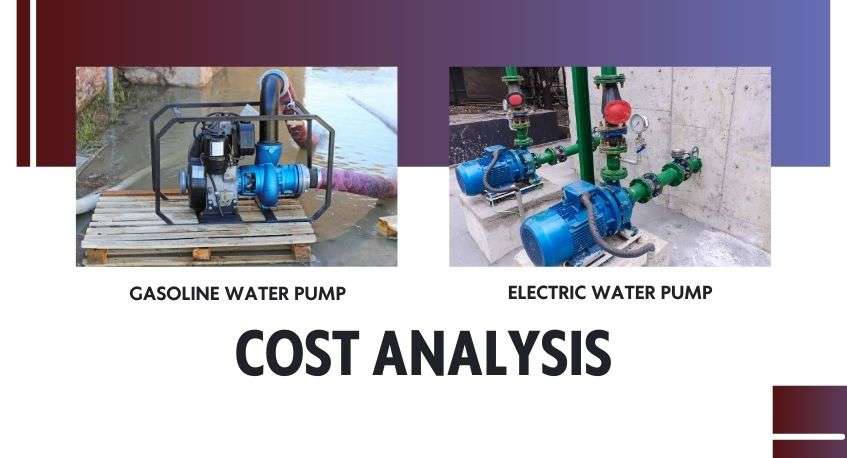Cost Analysis: Gasoline Water Pumps vs. Electric Water Pumps for Industrial Use

In industrial settings, choosing the right water pump is crucial for efficiency and cost-effectiveness. Two primary types of water pumps are gasoline and electric, each with its own advantages and drawbacks. This blog provides a detailed cost analysis of gasoline water pumps versus electric water pumps to help you make an informed decision for your industrial needs.
Initial Investment
Gasoline Water Pumps
- Higher Purchase Price: Gasoline water pumps typically have a higher initial purchase price compared to electric pumps. This is due to the more complex components and technology required for their operation, such as the engine and fuel system.
Electric Water Pumps
- Lower Purchase Price: Electric water pumps are generally more cost-effective upfront. They have fewer mechanical parts, which simplifies their design and manufacturing process, leading to a lower initial cost.
Operational Costs
Gasoline Water Pumps
- Fuel Expenses: Gasoline pumps require ongoing fuel expenses, which can significantly add to the overall cost of operation. Fuel prices fluctuate, which can impact your budget unpredictably.
- Energy Efficiency: Gasoline pumps are generally less energy-efficient compared to electric pumps, leading to higher operational costs over time.
Electric Water Pumps
- Electricity Costs: Electric pumps run on electricity, and their operational costs are tied to electricity consumption. They are typically more energy-efficient, resulting in lower electricity bills.
- Stable Costs: Electricity prices tend to be more stable than gasoline prices, providing more predictable operational costs.
Maintenance Costs
Gasoline Water Pumps
- Regular Maintenance: Gasoline pumps require regular maintenance, including spark plug replacement, air filter cleaning, and oil changes. These maintenance tasks result in higher ongoing costs and more downtime for the equipment.
- Durability: The mechanical nature of gasoline pumps means they can wear out faster, leading to more frequent repairs or replacements.
Electric Water Pumps
- Minimal Maintenance: Electric pumps have minimal maintenance needs, reducing the time and effort required to keep them running smoothly. They lack many of the moving parts that gasoline engines have, leading to fewer potential failure points.
- Longevity: Electric pumps tend to last longer due to less heat generation and fewer operational hours. This increases their overall lifespan and reduces the need for replacements.
Total Cost of Ownership
Gasoline Water Pumps
- Higher Long-Term Costs: While gasoline pumps may have a lower initial price, their higher fuel and maintenance costs make them more expensive in the long run. The ongoing expenses for fuel and frequent maintenance can quickly surpass the initial savings.
Electric Water Pumps
- Cost-Effective Long-Term: Electric pumps, with their lower operational and maintenance costs, offer a more cost-effective solution over time. Their stable electricity prices, reduced maintenance, and less frequent downtime contribute to a lower total cost of ownership.
Also Read: The Comprehensive Guide to Buying the Best Water Pump for Your Needs!
Conclusion
In summary, electric water pumps generally have a lower initial investment and are more cost-effective to operate and maintain in the long term compared to gasoline pumps for industrial applications. However, gasoline pumps may be preferable if portability and higher power output are critical requirements.
For industrial water pump needs, consider Zhejiang Bried. We supply high-quality gasoline water pumps tailored for industrial use. Contact us to learn more about how our products can meet your specific requirements.
Visit our website, Zhejiang Bried, for more information and to explore our range of gasoline water pumps.
